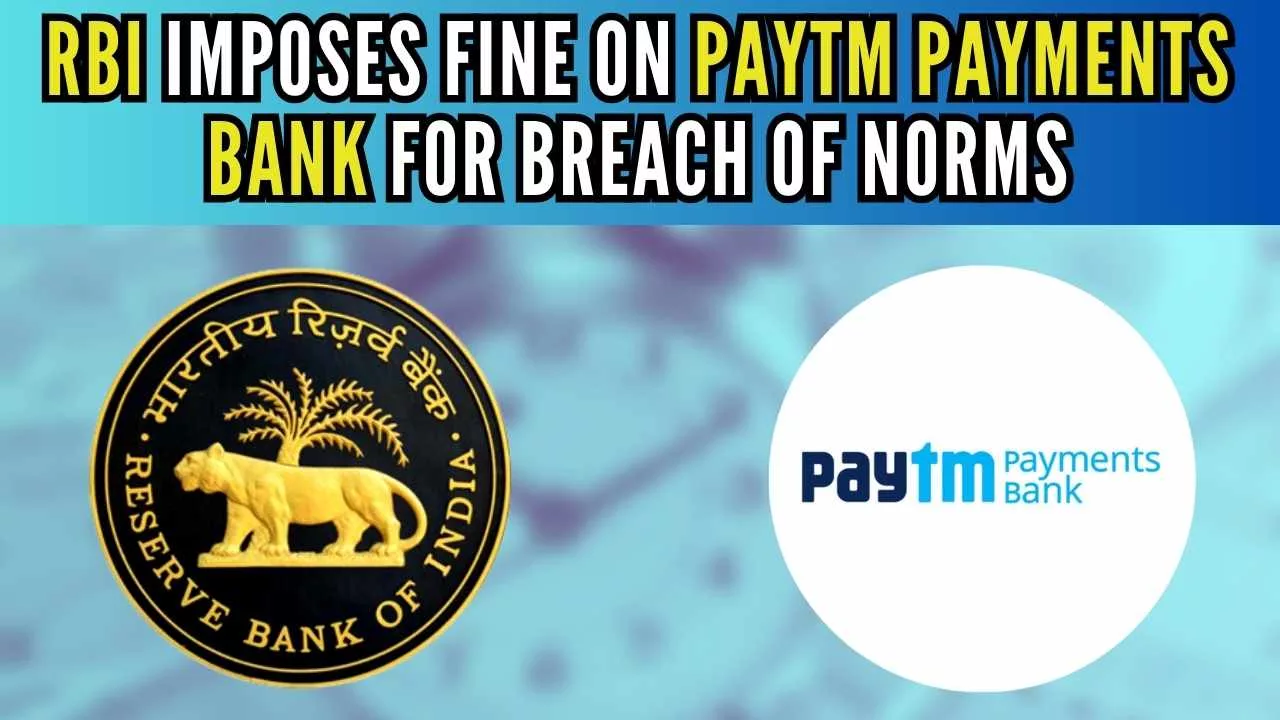Another Slap On The Wrist, Paytm Fined Yet Again, This Time For Not Paying Stamp Duties Of INR 47 Lakh
Paytm, established in 2010 by Vijay Shekhar Sharma, one of India’s leading fintech companies, has been at the forefront of digital payments and financial services in the country. The company has grown rapidly, offering a wide range of services including mobile payments, banking, and investments until it was hit by a series of regulatory actions and financial challenges.

Fintech giant Paytm has been hit with a fine of INR 47.12 lakh for failing to pay stamp duties related to the allotment of equity shares in previous years.
In a regulatory filing, Paytm stated, “We inform that the company has received orders dated August 13, 2024, from the Office of the Collector of Stamps, New Delhi, imposing a penalty totaling INR 47,12,000 for non-payment of stamp duty on the allotment of equity shares in prior years.”
The company further explained that the fine pertains to the non-payment of stamp duty amounting to INR 1.43 crore on the allotment of 10,26,386 equity shares of INR 10 each in the past years.
Paytm also mentioned that it had submitted applications for stamp duty payments at the appropriate times, though there were delays of a few days in some submissions.

The development follows recent fines imposed on the company for failing to pay stamp duties on equity shares allotted after the exercise of employee stock options (ESOPs) in previous years.
Additionally, last month, Paytm received a show-cause notice from market regulator SEBI regarding 2.1 crore stock options granted to the company’s founder and CEO, Vijay Shekhar Sharma, during the fiscal year ending March 2022 (FY22).
These events occurred shortly after Paytm expanded its employee stock option plan (ESOP) by allotting 1,10,357 equity shares to eligible employees.
Notably, the company has made four ESOP offerings in 2024 so far. However, reports have also circulated about the company potentially reducing its workforce by 15-20% this fiscal year, which contrasts with its positive employee initiatives.
Following regulatory challenges throughout 2024, Paytm recently received a significant reprieve with government approval to invest INR 50 crore in its payments arm, Paytm Payment Services.
Paytm’s troubles began earlier this year when the RBI directed it to halt the operations of Paytm Payments Bank in March.
Additionally, just last month, Paytm received an administrative warning from SEBI regarding related party transactions with PPBL in FY22, which were conducted without the necessary approval from either the audit committee or shareholders.
Paytm’s consolidated net loss widened to INR 840.1 crore in the June quarter (Q1) of the financial year 2024-25 (FY25), a 134% increase year-on-year from INR 358.4 crore in the same period last year.
At the same time, revenue from operations fell by 36% in Q1 FY25 to INR 1,502 crore, down from INR 2,342 crore in the corresponding quarter last year.

Paytm’s Many Fines
Earlier in March of this year, Paytm Payments Bank was fined Rs 5.49 crore for violating money laundering regulations.
It was alleged that proceeds of crime were being funneled through bank accounts held with the lender by entities involved in illegal activities.
The finance ministry’s arm initiated a review of Paytm Payments Bank after receiving specific information from law enforcement agencies about certain entities and their network of businesses engaged in various illegal activities, including organizing and facilitating online gambling.
A spokesperson for Paytm Payments Bank had then stated, “The penalty relates to issues within a business segment that was discontinued two years ago. Since then, we have enhanced our monitoring systems and reporting mechanisms to the Financial Intelligence Unit (FIU).”
On January 31, the Reserve Bank of India instructed PPBL to halt most banking services by February 29, a deadline that was later extended to March 15.
The development followed Paytm’s announcement that it was scaling back business ties with its banking affiliate in an effort to appease regulators seeking a clearer distinction between the two entities.
The listed company also revealed that the owners of Paytm Payments Bank Ltd. had agreed to simplify the shareholders’ agreement to strengthen its governance.
Although both Paytm and Paytm Payments Bank are part of billionaire Vijay Shekhar Sharma’s fintech empire, the bank is not controlled by the publicly traded mobile wallet pioneer.
The Last Bit, The recent challenges faced by Paytm Payments Bank indicate the growing regulatory scrutiny on financial institutions in India, particularly concerning compliance with anti-money laundering regulations.
However, despite these setbacks, including significant fines and operational restrictions imposed by the Reserve Bank of India, Paytm has taken steps to address these issues by enhancing its monitoring systems and refining its governance structures.
The company’s efforts to distance itself from its banking affiliate and improve compliance measures reflect a strategic move to manage the regulatory askings and maintain its position in the fintech industry.




